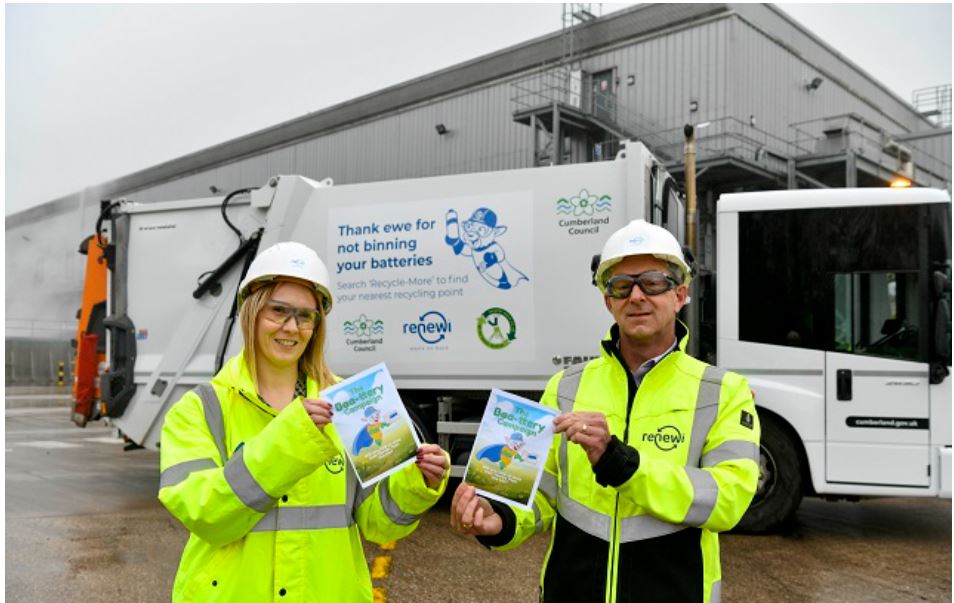A last minute European Commission decision means that UK battery recyclers could have to meet and report the efficiencies of their battery recycling processes next week, despite no system being in place for calculating them.
The efficiencies are the standards battery recycling processes must meet in order for a battery to count as recycled. To meet the efficiencies, a recycling process must recover a certain amount of useful material. For the majority of waste portable batteries this is set at an average recovery rate of 50% per battery by weight.

Under the Batteries Directive, reprocessors are expected to meet these efficiencies by September 26 2011. They also have to report on the efficiencies their processes are achieving so that, by June 2012, the UK can report on the efficiencies achieved between October and December 2011.
But, the European Commission is yet to agree a Europe-wide methodology for working out exactly how the efficiencies should be calculated and as a result was not expected to require member states to either meet or report their efficiencies within this timetable.
The Environment Agency had been expected to confirm this situation in a position statement, telling UK collectors, sorters and exporters who have responsibility for meeting the efficiencies even though they are reprocessed overseas that it would not take action against them for not reporting by the September 26 deadline. There are 13 companies approved to export waste portable batteries from the UK, and 14 approved as treatment facilities.
However, in a note sent to compliance schemes, reprocessors and regulators last week (September 8), Defra explained that the situation had now changed dramatically following a meeting with the Commission earlier this month.
The Commission have revised their position and, at an ad-hoc meeting on 5 Septoutlined their view that the 26 Sept 11 deadline for achieving the minimum efficiencies still stands and they are expecting member states to report on the efficiencies achieved over the period Oct Dec 2011, by June 2012, it states.

They are leaving it up to Member States to manage this process and determine what info they request from recycling facilities in support of the reported efficiencies.
The situation is further confused by an apparent lack of clarity over whether the Commission requires reprocessors both to meet and report the efficiencies by September 26th, or just to report them.
One UK sorter told letsrecycle.com: It is unclear whether we have to meet it or just report it. If it is just to report it, wed need confirmed that if we dont meet the efficiencies we cant be prosecuted.
He added that collectors and recyclers had hoped for more than three weeks to record the efficiencies, explaining we dont know what we have got to do but we still have to record it.
General approach
To address the situation, Defra suggests a number of actions, including agreeing a general approach among member states to avoid recycling facilities being overloaded with different requests for information on efficiencies from different member states.
It also proposes each member state only report on the recycling efficiencies achieved by facilities located within their territory.
And, it says that member states should not prescribe the method a facility should use for calculating its efficiencies for the period October to December 2011. Instead the reprocessor should calculate it based on the information they already have available about their processes.
Clearly this approach would need to be agreed between member states, Defra says. Ideally the Cion [Commission] would provide this direction in recognition of the difficulty MSs are likely to face in the absence of an agreed EC-wide methodology.
Methodology
A note on the September 5 meeting that is attached to the Defra e-mail explains that work is ongoing to arrive at a final Europe-wide calculation method, with a view to it being agreed by member states by end of 2011 and introduced 18 months later potentially from 2014.
Final agreement on the battery recycling efficiencies is seen as key to providing the certainty needed for developing new battery recycling infrastructure. Some have also claimed that, if the efficiencies are set higher than expected, it could make existing processes obsolete (see letsrecycle.com story).










Subscribe for free